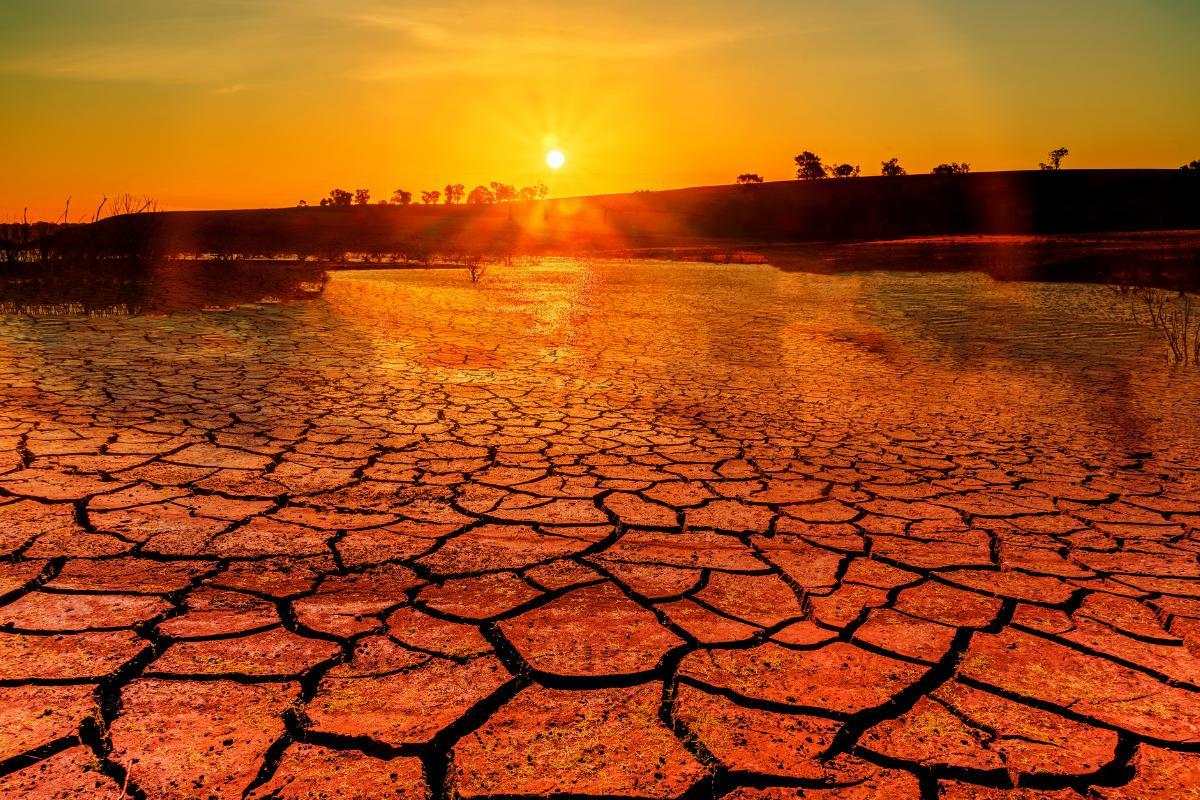What Is the Era of Global Boiling?


In July 2023, experts underscored the exceptional and previously unseen nature of the temperatures reached in the summer of 2023. Their investigation revealed that July 2023 set a new record for the highest ever recorded. Furthermore, it marked an unprecedented occurrence by registering the three highest temperatures in a single day. Due to the very concerning situation, a new terminology has been developed to describe and elucidate it. Thus, the term "global boiling," rather than "global warming," was born to accurately depict this escalating scenario.
The following article by thedailyECO discusses what global boiling is, its implications, as well as possible repercussions and solutions.
What is the era of global boiling?
The era of global boiling is a term used to describe the current period characterized by exceptionally high temperatures.
On July 6th 2023, according to data from the US Centers for Environmental Prediction, the Earth experienced its hottest day since the inception of calculating mean global temperatures in 1979, with an average temperature of 17.18ºC.
Although this value significantly falls below the scientific boiling point of 100ºC that transitions water from liquid to gas, the term "global boiling" has emerged recently to emphasize the gravity of the climate change issue.
The computation of the global average entails the utilization of data collected from approximately 20,000 weather stations, ocean vessels, buoys, and satellites spanning the last 44 years.
Historical documentation of the Earth's surface temperature traces back to the mid-ninth century. During this era, measurements of near-surface air temperatures from weather stations were amalgamated with data extracted from ship and buoy recordings of the ocean surface.
To assess temperatures predating this period, researchers relied upon proxy data derived from tangible remnants found within ice cores and the growth rings of ancient forests.
Don't overlook this other article that delineates the distinctions between temperature and heat.

Differences between climate change, global warming and the era of global boiling
Confusion often arises when people encounter these terms. Let's delve into a detailed breakdown of their differences.
Climate change encapsulates the gradual alterations in temperature and climatic conditions over time. Throughout Earth's history, natural forces have driven climate changes. However, in modern times, it chiefly refers to changes induced by human activities. These activities, like burning fossil fuels and deforestation, accelerate the natural processes, leading to significant and often adverse consequences for ecosystems and societies.
Global warming is a part of the broader concept of climate change. It specifically pertains to the consistent increase in Earth's average surface temperature due to human-produced greenhouse gas emissions. This phenomenon contributes to climate change by intensifying temperature shifts and causing ecological imbalances.
Conversely, the era of global boiling alludes to a historical stretch characterized by unprecedentedly high temperatures. The duration of this era remains uncertain, but its trajectory is poised to intensify unless prompt measures are enacted to reverse the course.
The term "global boiling" was coined by António Guterres, the present head of the United Nations, during a news briefing. This nomenclature emerged in conjunction with the confirmation from scientists that the month of July is on track to claim the title of the hottest month ever recorded on Earth.
You may find interest in this related article, where we discuss the factors behind the occurrence of heat waves.
Consequences of the era of global boiling
The repercussions of this global heat surge are profound, affecting individuals, biodiversity, and even the economy. Let's delve into some of these consequences:
- Escalation of forest fires: the temperature upsurge significantly heightens the likelihood of forest fires, which can capriciously ravage vast natural expanses. These destructive blazes have been particularly prominent in regions like North Africa and Southern Europe. Alarmingly, they have encroached upon inhabited areas, imperiling residents.
- Erosion of ecosystem resilience: the abrupt changes occurring within a short span of time render ecosystems unable to cope effectively. Consequently, their capacity to rejuvenate in response to disruptions diminishes, rendering them more susceptible to future threats.
- Diminishing biodiversity: in tandem with the previous point, species struggle to acclimate to the rapid and drastic shifts. The result is a decline in the adaptability of various species to the evolving conditions. A deeper exploration into this topic can be found in an article on the causes and consequences of biodiversity loss.
- Threat to food security: elevated temperatures bring forth droughts, which imperil the very agricultural systems that sustain humanity.
- Vulnerable communities and monsoon rains: climate-induced imbalances have triggered torrential monsoon rains that disproportionately affect vulnerable communities. These intense downpours lead to flash floods, causing damage to property, livelihoods, and lives.
- Heat-related health issues: elevated temperatures pose health risks, particularly heat strokes, which are more prevalent among at-risk demographics such as the elderly and children.
- Warming oceans: the ocean's warming jeopardizes the entire hydrological cycle and endangers marine species, along with the livelihoods associated with marine industries.
- Critical temperature rise of 1.5 °C: while it might appear minor, a 1.5 °C increase in atmospheric temperature compared to pre-industrial levels is a pivotal threshold. It propels the escalation of risks like fires, droughts, and other natural calamities.
Make sure to explore this other article, where we outline various forms of environmental impact.

Are there solutions for the era of global boiling?
Monitoring the climate and the broader environmental shifts holds utmost significance. While some perceive this as adopting a pessimistic stance that highlights the world's challenges, the purpose behind maintaining records is to remain vigilant and instigate preemptive measures before the issues exacerbate.
Hence, viable solutions exist to halt the progression of the era of global boiling, primarily through climate action. Several avenues to achieve this are as follows:
- Governmental initiatives: a pivotal step involves the transition towards green energy sources, effectively curbing the emission of greenhouse gases and working towards the objective of zero emissions. Given that nearly all human activities necessitate energy, the profound impact of this transition cannot be understated. This very objective is at the heart of the United Nations' 2030 Agenda. However, the challenge persists as numerous countries still grapple with the need to enhance their strategies and diminish their reliance on fossil fuels.
- Advocating low-impact personal practices: while governments and industries wield substantial influence, individuals wield considerable power to make conscious decisions. A shift towards reducing animal-derived products in diets, for instance, can curtail carbon footprints by a significant margin—up to two-thirds, in fact. Similarly, opting for public transportation instead of private vehicles leads to a mere 28 grams of CO2 emissions per traveler, as opposed to the 157 grams generated by private transport. These examples underscore the substantial influence individuals possess in shaping a sustainable future through their personal choices.
In essence, while the era of global boiling presents a formidable challenge, the capacity to address it lies in comprehensive efforts that span governmental policies to personal lifestyle choices. This collective action holds the key to reversing the current trajectory and ensuring a more balanced and habitable planet for generations to come.
Expand your knowledge further by delving into this additional article on safeguarding nature's ecosystems.
If you want to read similar articles to What Is the Era of Global Boiling?, we recommend you visit our Climate change category.
- United Nations News (2023) Hottest July ever signals 'era of global boiling has arrived' says UN chief. Available at: https://news.un.org/en/story/2023/07/1139162







